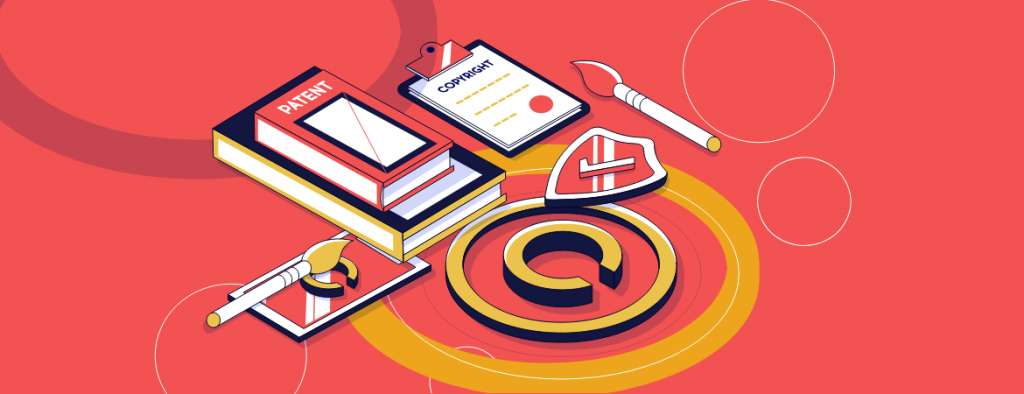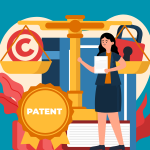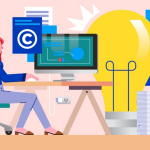One day you decide to start a website to assist law students to crack CLAT examination.
On the website, you provide detailed articles on topics which often come in the CLAT papers.
You also hold mock tests weekly to help the students practice and ace the final exam.
You research and pick some good questions directly from the mock tests of popular books in order to make a tough and realistic practice test.
Eventually, your website attracts huge traffic and becomes the most visited website for CLAT examination in India.
You start earning revenue by letting popular companies to host advertisements on your page. You also charge law aspirants to buy a premium package which consists of exhaustive reading material and question papers.
Seeing your popularity a few big legal edu-tech invest huge capital in your business.
Your team has grown from 2 to 100 in the span of three years and you are soon to reach a US$10 million in revenue.
One day you get a legal notice from a leading publishing house in India claiming infringement of copyright of their material.
On further examination of the notice you realise that the publishing house has claimed that you have picked several questions in your mock test directly from the question papers published in their CLAT preparation books and that amounts to copyright infringement.
You are surprised. You wonder if questions can be protected under copyright law? Aren’t they merely adaptations of another literary material?
You dig out the IP law books which stand tall in your library to find some answers to the notice.
You analyse section 13 of the Act which defines what can be subjected to copyright protection:
Basically, a copyright protection is conferred on all original literary, artistic, musical or dramatic, cinematograph and sound recording work
After further research and analysing definitions you end up with two questions:
- Do questions in a question paper amount to “literary” work?
- Can questions be termed as “original” work?
Well, let us explore the answers to these questions.
The term ‘literary’ in copyright law is to be used in a sense somewhat similar to the use of word literature in political or electioneering literature and refers to written or printed matter as decided in the landmark UK case of University of London Press Ltd. v. University Tutorials Press Ltd. (University of London case)
When the issue around copyright of the questions reached the Supreme Court of India in The Institute of Chartered Accountants of India Vs. Shaunak H. Satya and Ors2011, the Court clarified that the questions in the question papers are literary works which are products of human intellect and therefore subject to a copyright.
That answers our first question.
The answer to the second question is also found in the University of London case.
The Court while expanding on the word “original” in the Copyright Act stated that, original does not mean that the work must be an expression of original or inventive thought. The Copyright Act is not concerned with originality of ideas but expression of thoughts and that work must not be a copy of another work.
The same view was also upheld by the Allahabad High Court in Agarwala Publishing House Vs. Board of High School and Intermediate Education and Anr . which stated that the word ‘original’ used in Section 13 of Indian Copyright Act 1957 does not imply any originality of ideas but merely means that the work in question should not be copied from some other work but should originate in the author, being the product of his labour and skill.
Thus it is established that such questions in a question paper are to be counted as ‘original’ works as they are not copied from any book but originated from the author and the preparation of such papers involved selection, judgment and experience.
The Indian courts also agreed that there was no doubt therefore that the questions come within the category of ‘original literary works’ mentioned in Section 13 of the Indian Copyright Act, 1957, and that copyright can be claimed therein.
This raises further questions for me.
- Can court judgements be reproduced without permission of the courts?
- Can I duplicate the content from another book as far as I give credit to the authors?
- Do I need the consent of such authors?
- Does an original literary work need to be registered in order to initiate a suit of copyright infringement?
If you are an IP law enthusiast then I am sure these questions can be a start for some great research on copyright law.
Does this sound exciting to you?
Are you interested in exploring a career in IP?
Do you want to know what work IP lawyers perform?
What are various opportunities for IP lawyers to work in the domestic and international market?
Then we invite you to our 3-days bootcamp on “How to kickstart your international IP law career today” from 14-16 May 2021, 6-9pm.
During this boot camp you will learn some practical skills which will help you to assist foreign IP lawyers, startups and e-commerce businesses – and leverage this experience later for higher studies abroad.
It can also be your gateway to make an international career in the IP law and can be a game changer when you apply for your LL.M. abroad.
REGISTER HERE- [BOOTCAMP LINK]
It is FREE, ONLINE and can be attended from anywhere in the world.
You may also refer this boot camp to a fellow IP law enthusiast by forwarding them this link: https://lawsikho.com/iplawbootcamp
WhatsApp Link: https://chat.whatsapp.com/KipwbKIfdosCoe6qOEqPac
Telegram Link: https://t.me/joinchat/RiTzRv17FjmqYcb3
We have also started a YouTube channel on IP law which is updated daily, make sure you subscribe to it: https://youtube.com/playlist?list=PLzs5G6XyVgrdcprx_ShdmvgyC4E7vSkuP
Students of Lawsikho courses regularly produce writing assignments and work on practical exercises as a part of their coursework and develop themselves in real-life practical skills.
LawSikho has created a telegram group for exchanging legal knowledge, referrals, and various opportunities. You can click on this link and join:
https://t.me/lawyerscommunity2
Follow us on Instagram and subscribe to our YouTube channel for more amazing legal content.





 Allow notifications
Allow notifications
